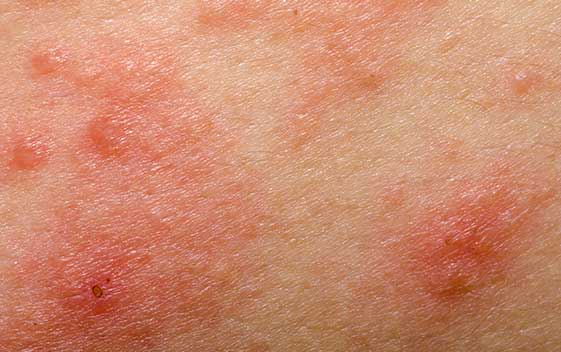
Overview of Eczema
Eczema is the name for a group of conditions that cause the skin to become red, itchy, and inflamed. There are several types of eczema, the most common being:
Atopic Dermatitis - A chronic, itchy skin condition that may occur at any age. Atopic dermatitis is usually hereditary and occurs in those with other allergic problems such as asthma and hay fever.
Contact Dermatitis - A skin condition caused when chemicals or triggers physically damage the skin faster than the skin is able to repair itself.
Hand Dermatitis - Any time eczema or dermatitis on the skin can be classified as hand dermatitis. Hand dermatitis can be troublesome due to the thickness of the skin on parts of the hand.
Seborrheic Dermatitis (Seb Derm) - Seborrheic Dermatitis mainly affects the scalp, causing scaly, itchy red skin and dandruff. In babies, seborrheic dermatitis of the scalp is commonly referred to as cradle cap.
Eczema Symptoms
Eczema symptoms are different for everyone, though in most cases, eczema causes itching and can make skin appear dry, red, rough, or swollen. This itching can be mild or severe, resulting in inflamed and even damaged skin.
Often times, eczema can go undiagnosed, as those suffering from it attribute their discomfort to dry skin. If you have chronic, dry patches of skin in consistent areas, talk to your doctor.
Causes of Eczema
While the specific cause of eczema remains unknown, healthcare professionals believe the disease can be caused by a combination of factors. For instance, a child who has a parent with eczema is more likely to have eczema. Professionals believe that a variety of environmental irritants, like detergents, allergens, bacteria, a shift in temperature, types of food, stress, and even hormones, can cause an eczema flare-up.
